JetPack-6.x Installation for DSBOARD-AGX
WHAT YOU WILL LEARN?
2- Installing the Jetson OS
3- Installing the Jetson SDK Components
Attention: If you want to transfer the root file-system to an external drive and it has another JetPack version root file system, please format it before starting this blog post.
Including the Kernel Files in Jetson OS Image
Open the NVIDIA SDK Manager. Select the correct JetPack version for Target Operating System and “Jetson AGX Orin modules” for Target Hardware (The “Host Machine” components are not required).
Then, continue to Step 2.
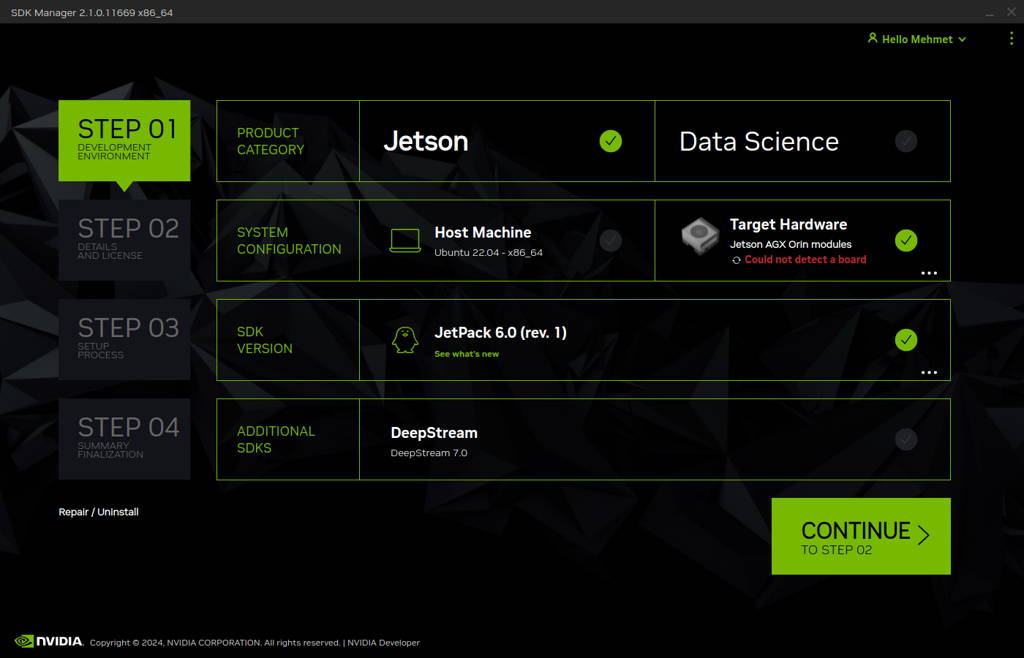
Choose only “Jetson Linux”, accept the terms & conditions and continue to Step 3.
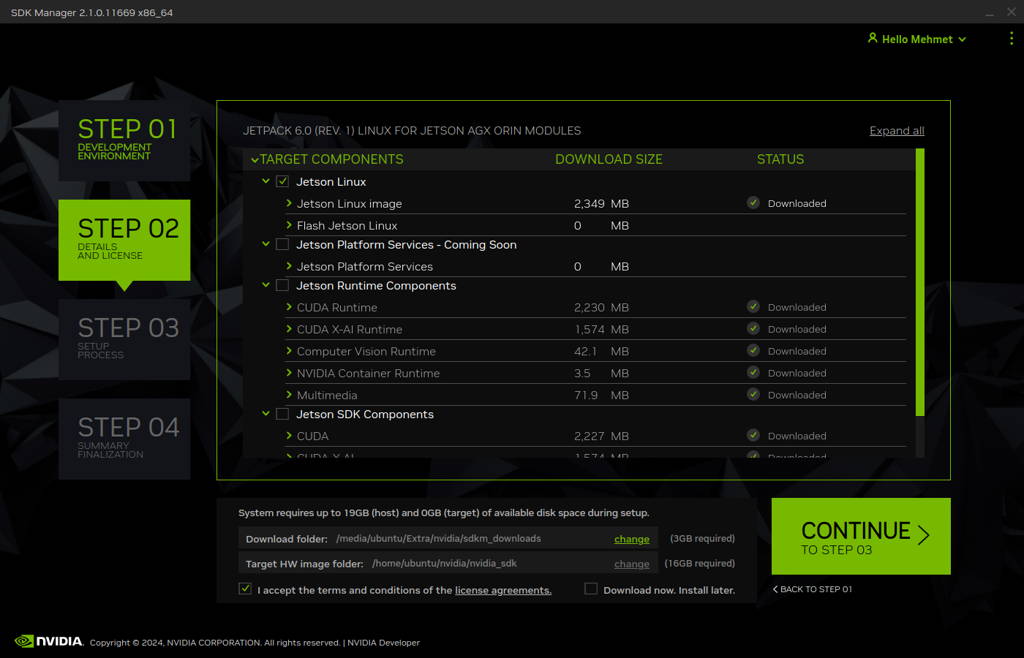
The SDK Manager will ask the username’s password. Fill it and continue.
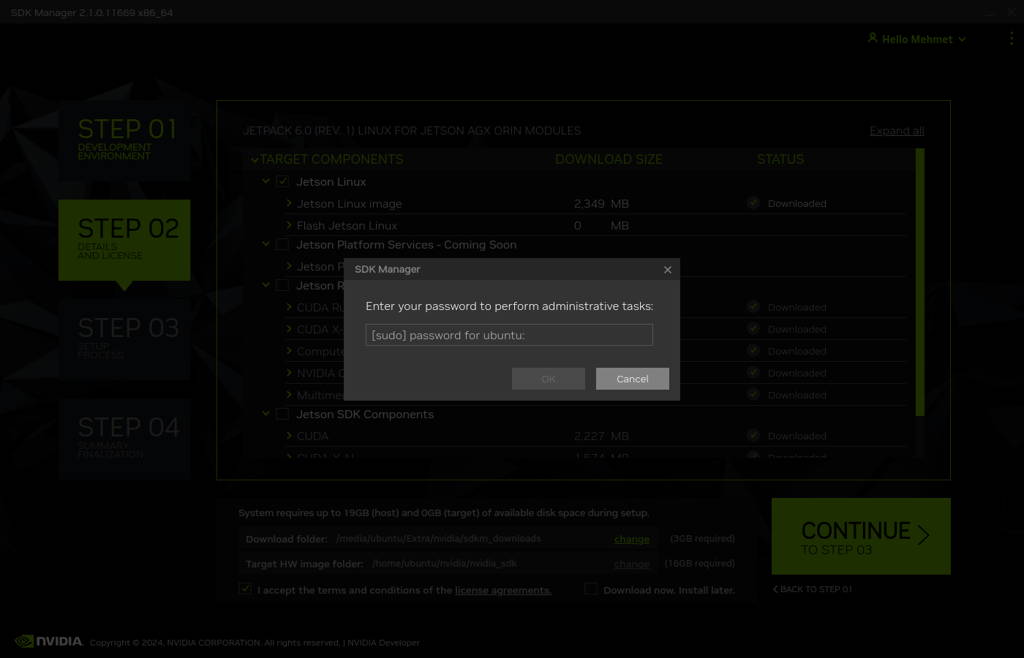
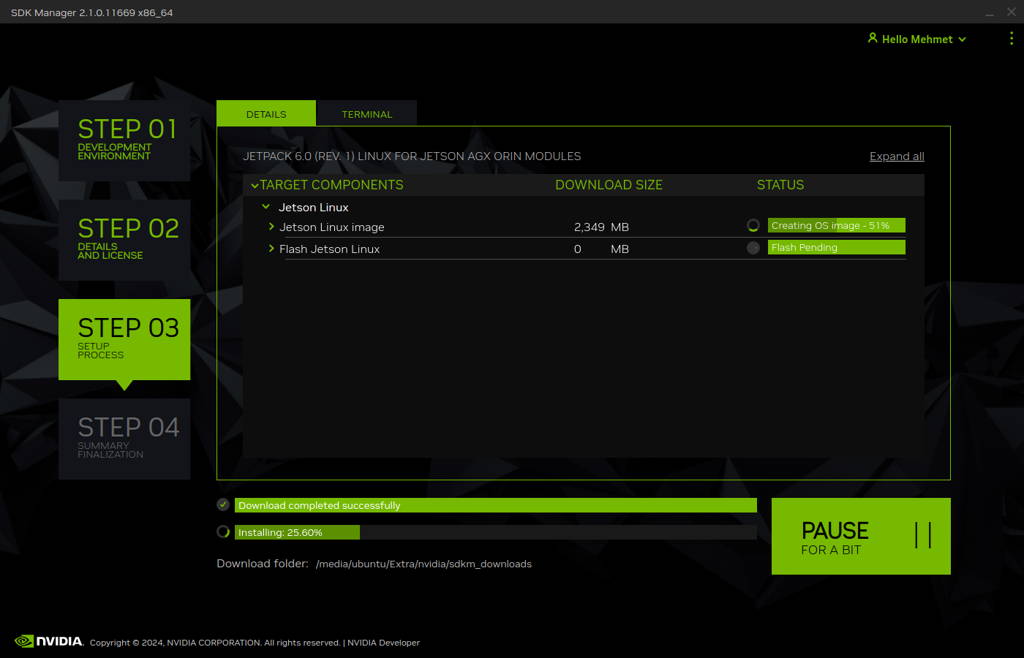
After the Jetson OS has created, the SDK Manager asks the Jetson module’s flashing style. Just skip it and exit from the SDK Manager.
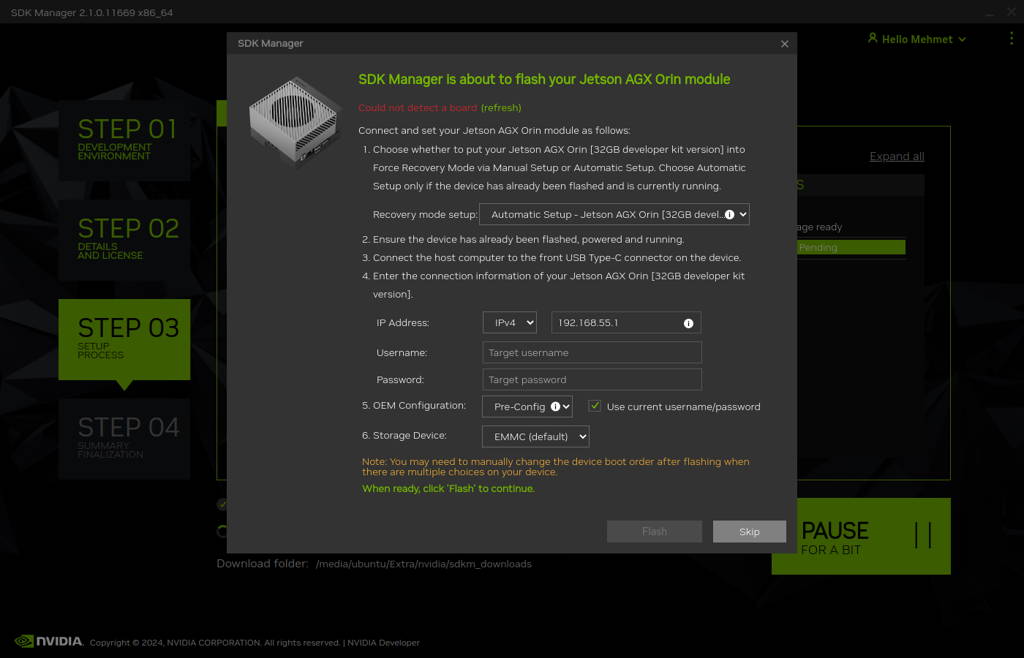
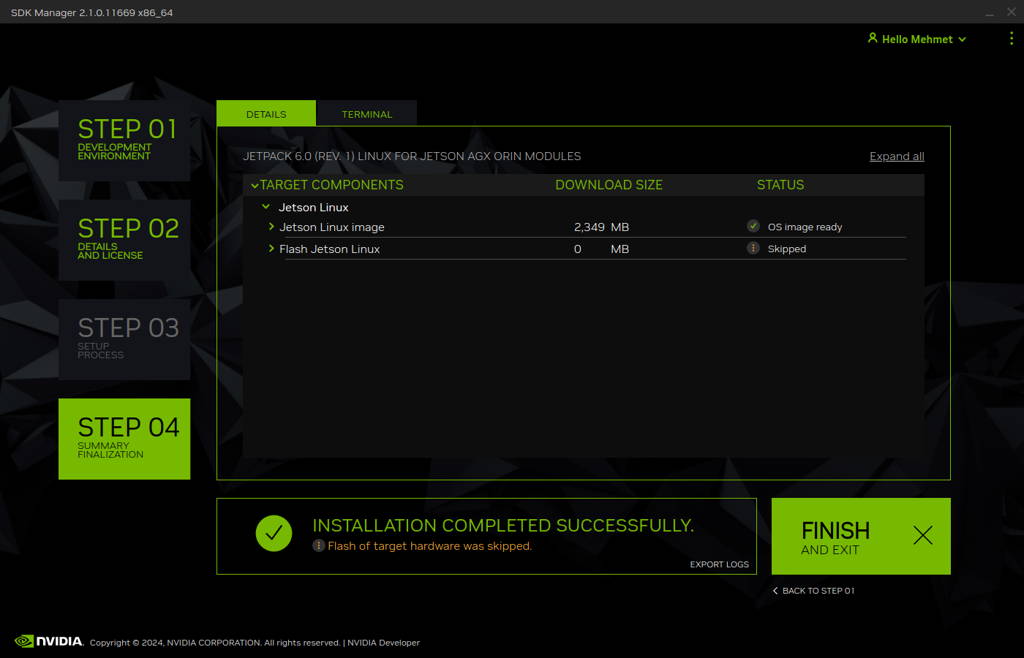
Open the target HW image folder.
For JetPack-6.0
AGX Orin: ~/nvidia/nvidia_sdk/JetPack_6.1_Linux_JETSON_AGX_ORIN_TARGETS/
AGX Orin: ~/nvidia/nvidia_sdk/JetPack_6.2_Linux_JETSON_AGX_ORIN_TARGETS/
AGX Orin: ~/nvidia/nvidia_sdk/JetPack_6.2.1_Linux_JETSON_AGX_ORIN_TARGETS/
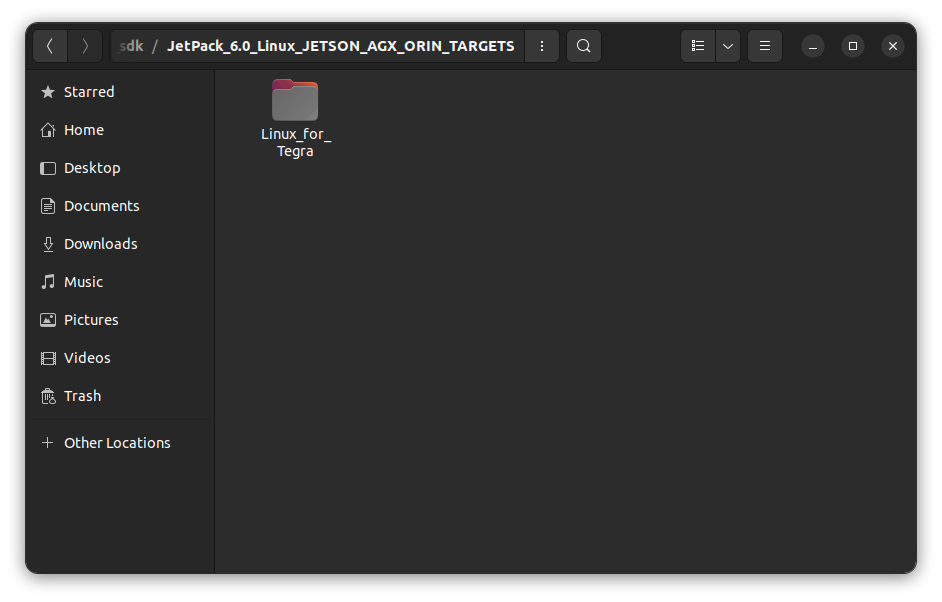
For JetPack-6.0:
Download the BSP files from GitHub link and extract it (AGX Orin)
For JetPack-6.1:
Download the BSP files from GitHub link and extract it (AGX Orin)
For JetPack-6.2:
Download the BSP files from GitHub link and extract it (AGX Orin)
For JetPack-6.2.1:
Download the BSP files from GitHub link and extract it (AGX Orin)
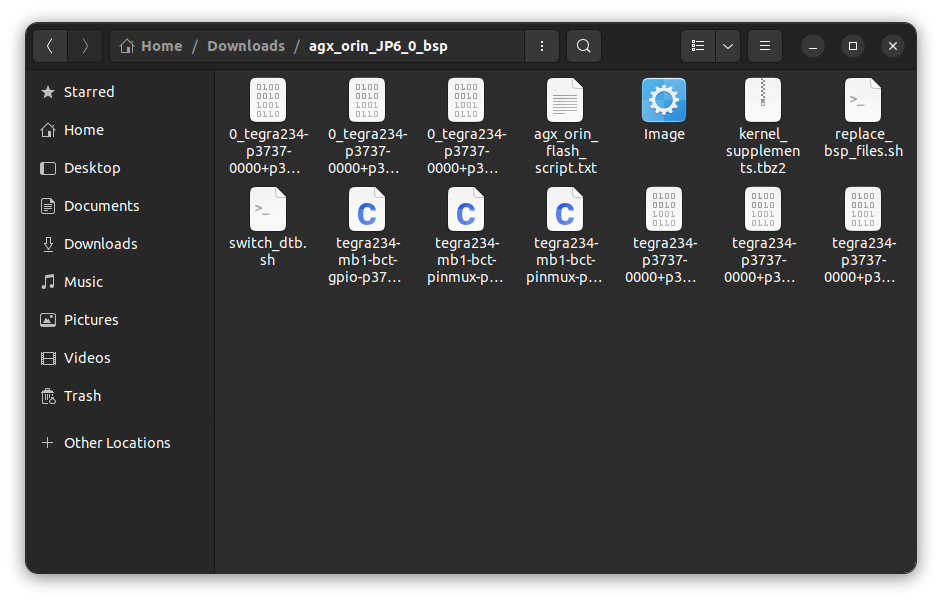
Copy all files to the target HW image folder.
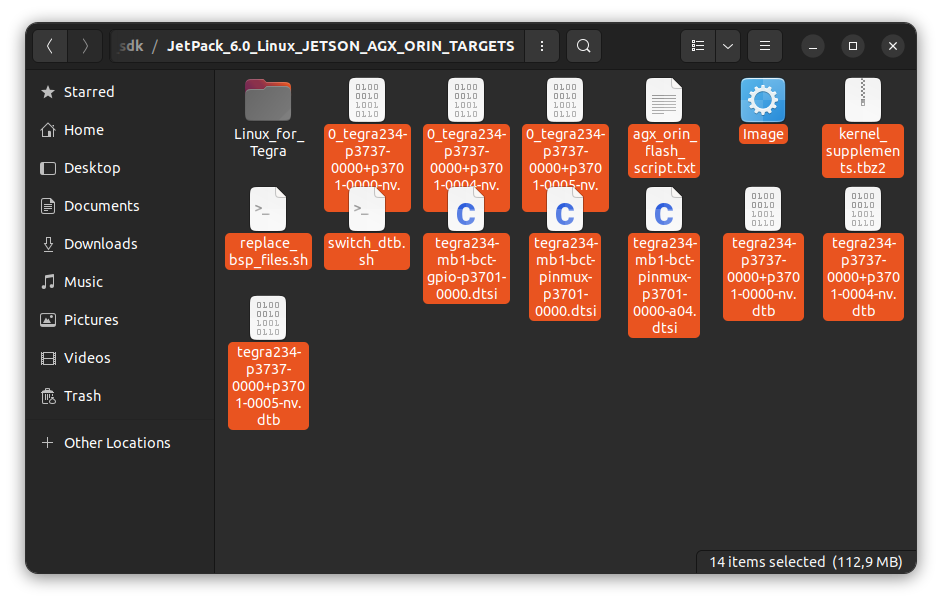
Open a Terminal in the “Linux_for_Tegra” folder.
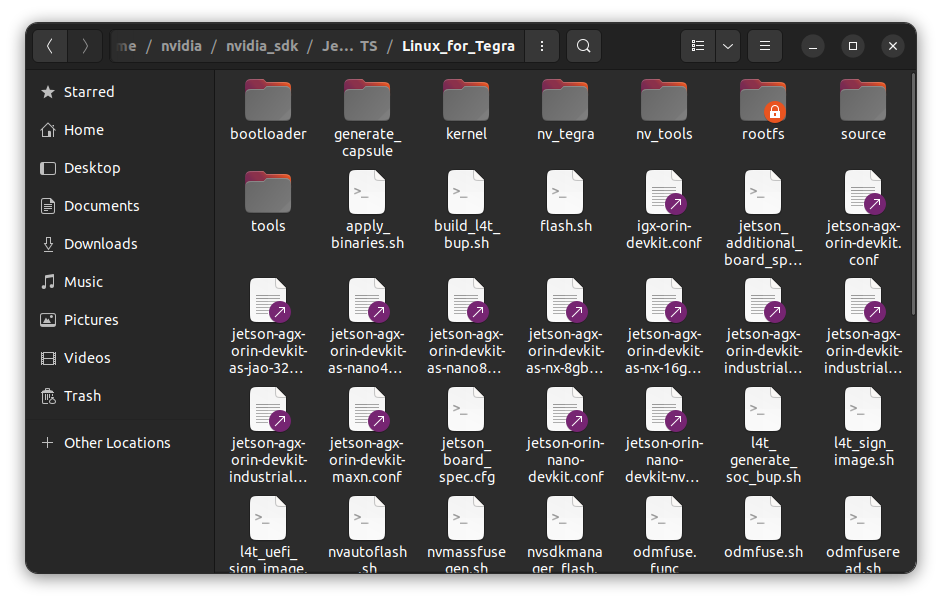
Create the system binaries with these commands below:
sudo ./tools/l4t_flash_prerequisites.sh
sudo ./apply_binaries.sh
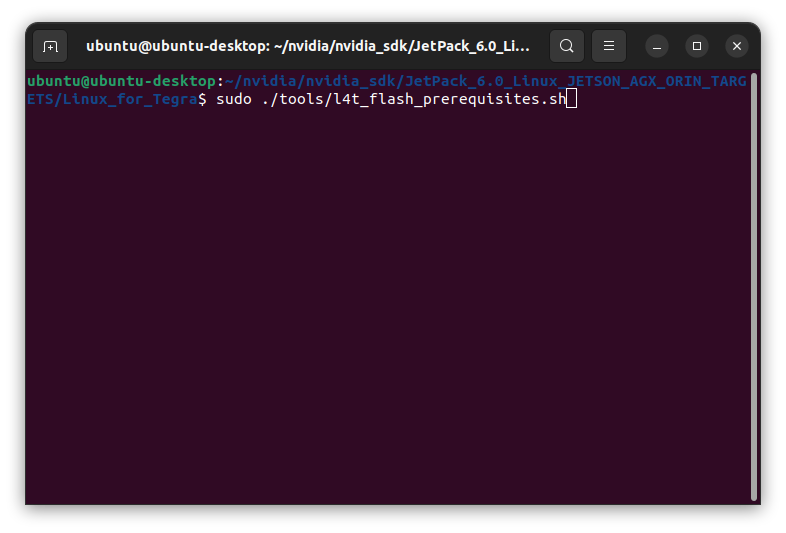
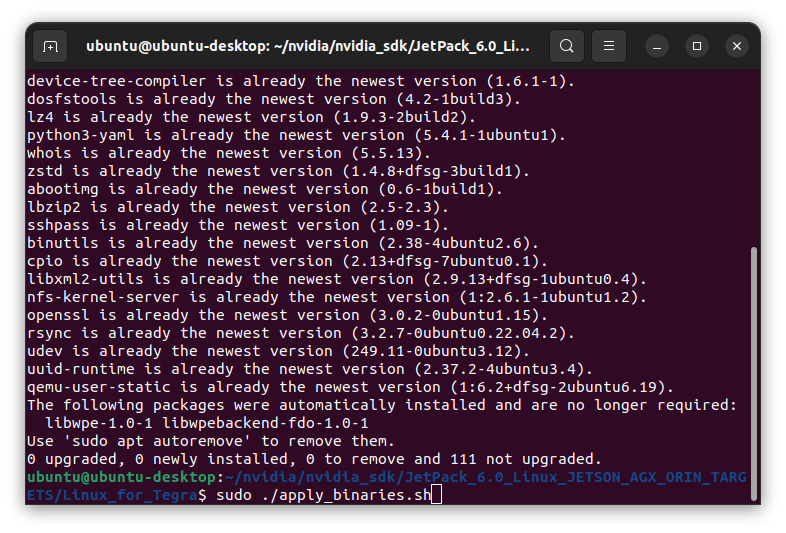
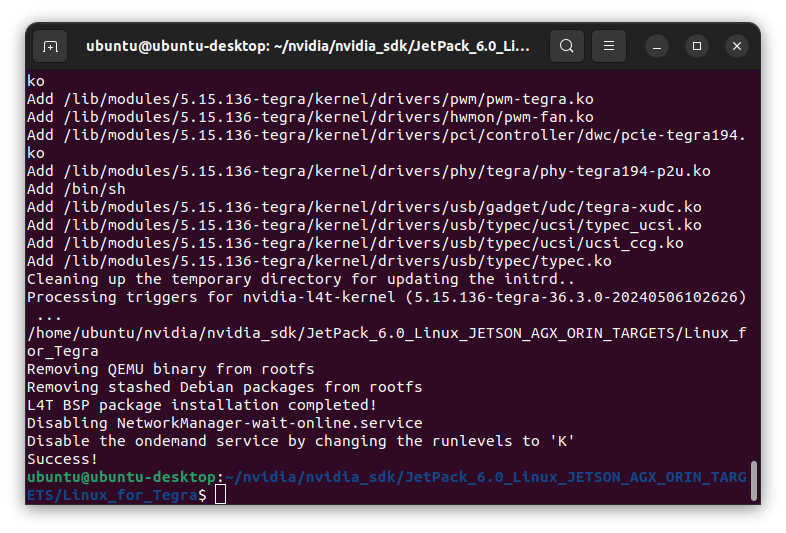
Apply the new BSP files and interface configurations with the following commands below:
cd ..
sudo ./replace_bsp_files.sh
cd Linux_for_Tegra/
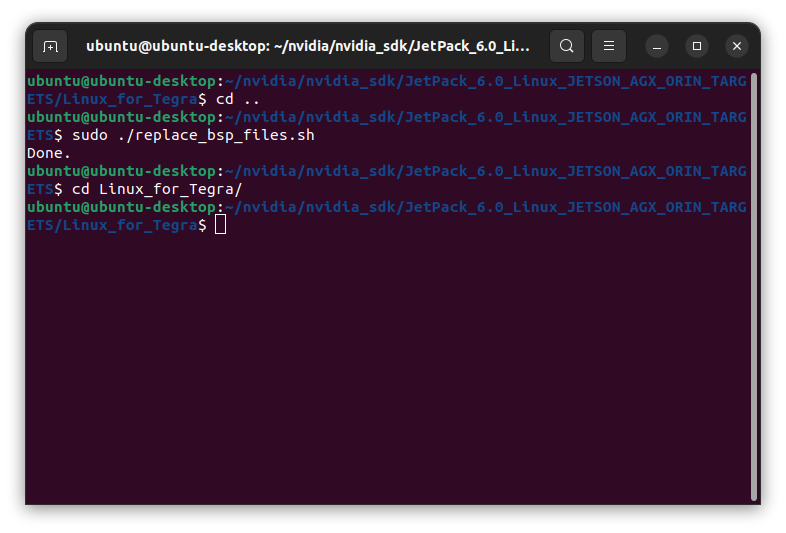
Hint: If you want to configure your username-password & hostname with default settings, you can create user without the Ubuntu installation wizard. To do this, the user generation command structure should be:
sudo tools/l4t_create_default_user.sh -u {USERNAME} -p {PASSWORD} -a -n {HOSTNAME} --accept-license
For example (username:"forecr", password:"forecr", device-name:"forecr-desktop"):
sudo tools/l4t_create_default_user.sh -u forecr -p forecr -a -n forecr-desktop --accept-license
Jetson OS Installation
Connect the recovery USB (between installer PC & DSBOARD-AGX's recovery USB) and power connection of your DSBOARD-AGX.
While the DSBOARD-AGX's power connector plugged in,
• press reset & recovery buttons together
• release reset button
• release the recovery button after 3 seconds later. This will set it to Recovery mode.
Attention: To be able to get more stable USB connection, please do not connect the Jetson via a USB hub or docking station to the host PC. Use a USB cable to the host PC directly.
Then, type “lsusb” and check the device connected in Recovery mode.
• "0955:7023 NVidia Corp." for AGX Orin 64GB• "0955:7223 NVidia Corp." for AGX Orin 32GB
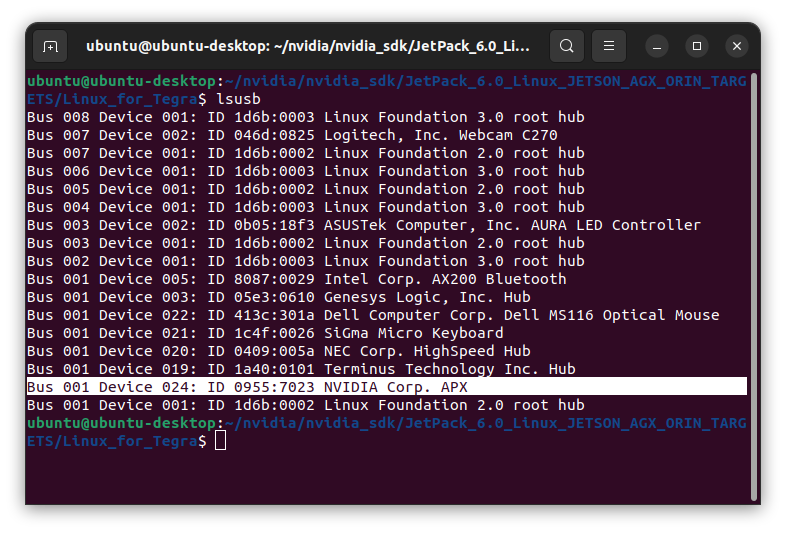
Flash the Jetson OS with this command below:
sudo ./flash.sh jetson-agx-orin-devkit mmcblk0p1
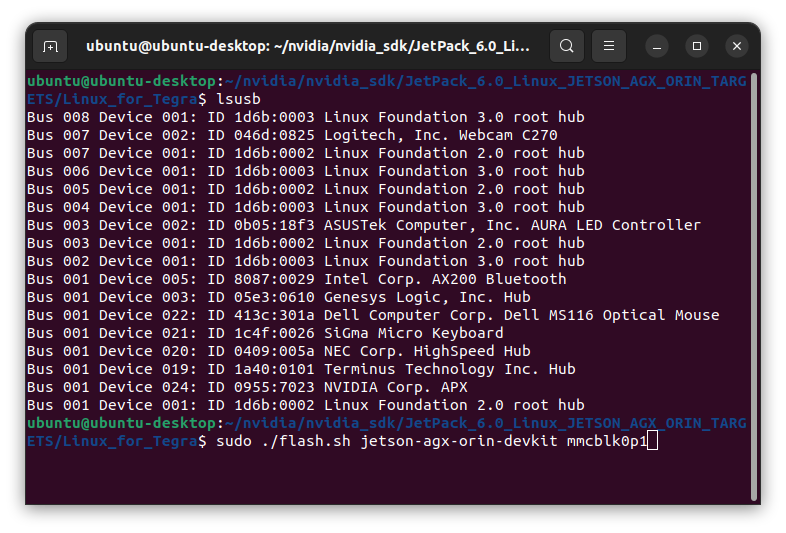
At the end of the script, the device will reboot. Complete your Ubuntu installation wizard (if you have not created a user with tools/l4t_create_default_user.sh script file) from the DSBOARD-AGX (language, keyboard type, location, username & password etc.).
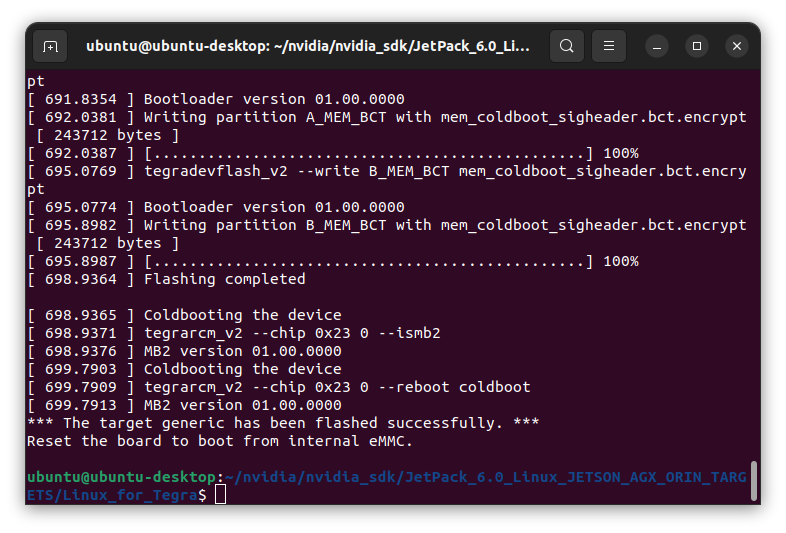
[Optional] If you will use the recovery USB port as host (to be able to connect USB devices), please verify that the FDT parameter has been applied in the extlinux.conf file. In JetPack-6 installation, this parameter may not included in it. If this parameter is missing in it, please open it with a text editor and write "FDT" with the DTB file (located in the /boot/dtb/ folder).
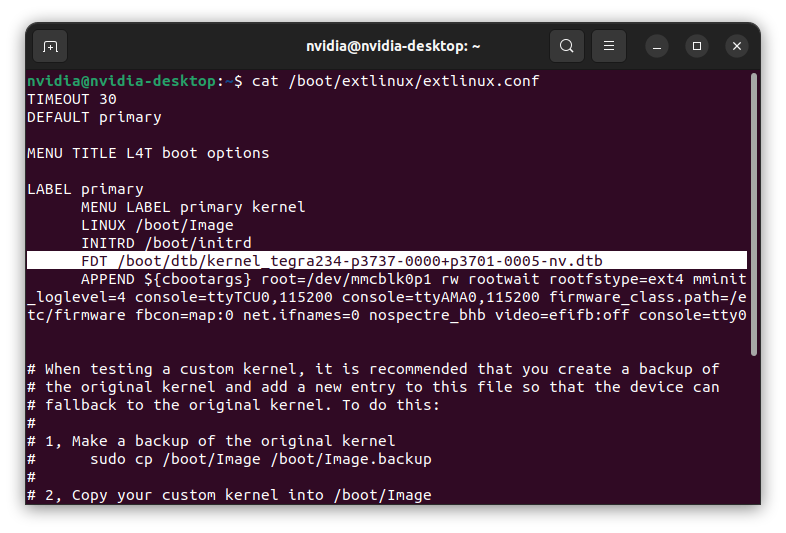
Then, please open a terminal from the Jetson Orin and type the following command below. This will update its current device-tree and reboot it.
Otherwise, you can use this port for virtual network communication (file transfer etc. between host PC with 192.168.55.1 IP address) in default.
sudo switch_dtb.sh
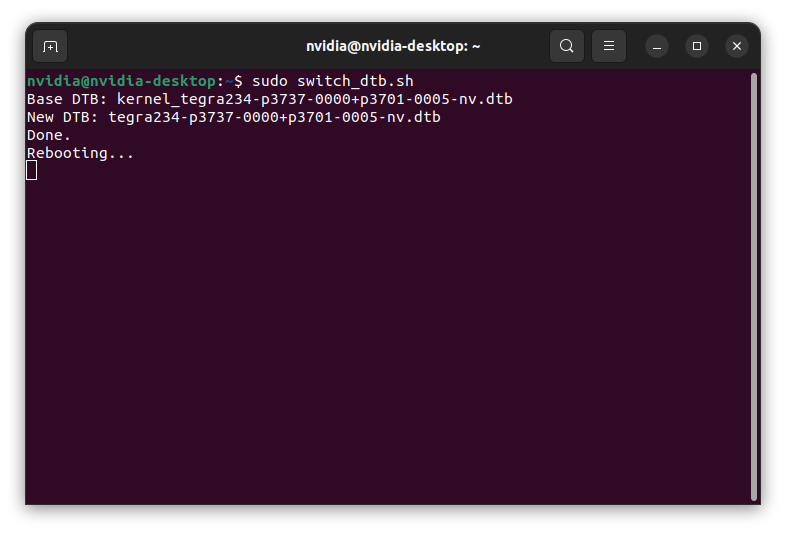
Jetson SDK Components Installation
Connect the DSBOARD-AGX to the Ethernet. Then, open the NVIDIA SDK Manager. Select the correct JetPack version for Target Operating System and “Jetson AGX Orin modules” for Target Hardware (The “Host Machine” components are not required. Additional SDKs (DeepStream) are optional).
Then, continue to Step 2.
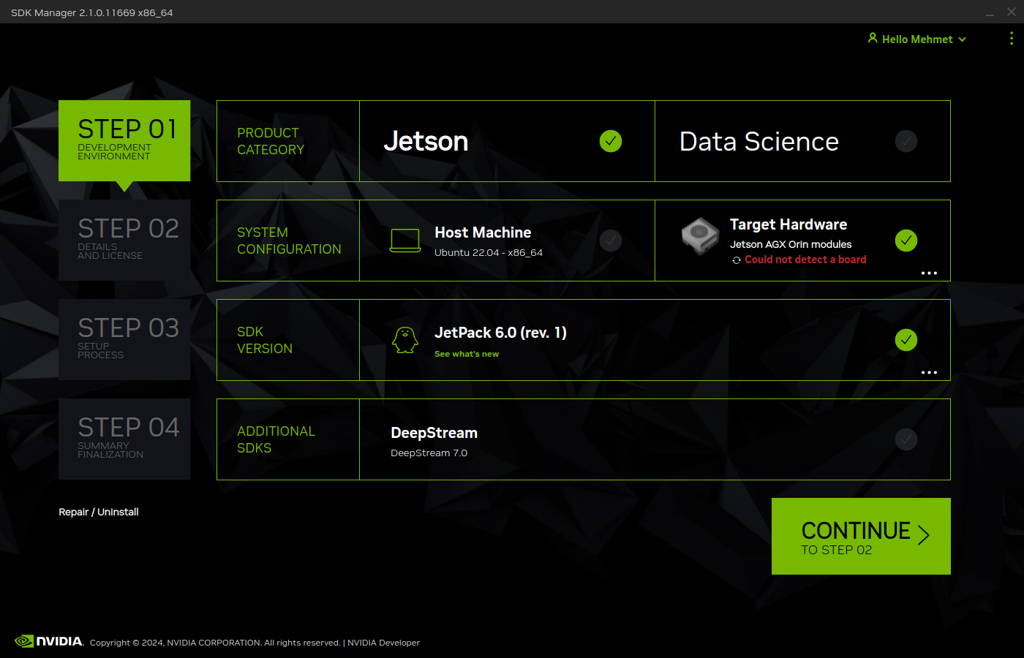
Choose at least “Jetson Runtime Components” (“Jetson SDK Components” are optional. It depends on your use case), accept the terms & conditions and continue to Step 3.
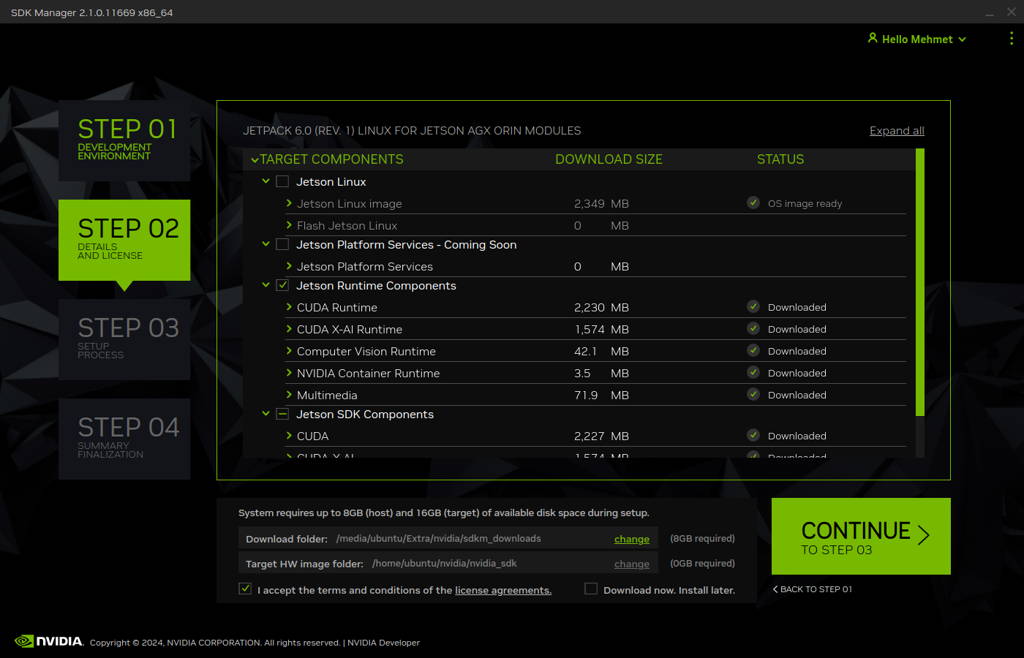
The SDK Manager will ask the username’s password. Fill it and continue.
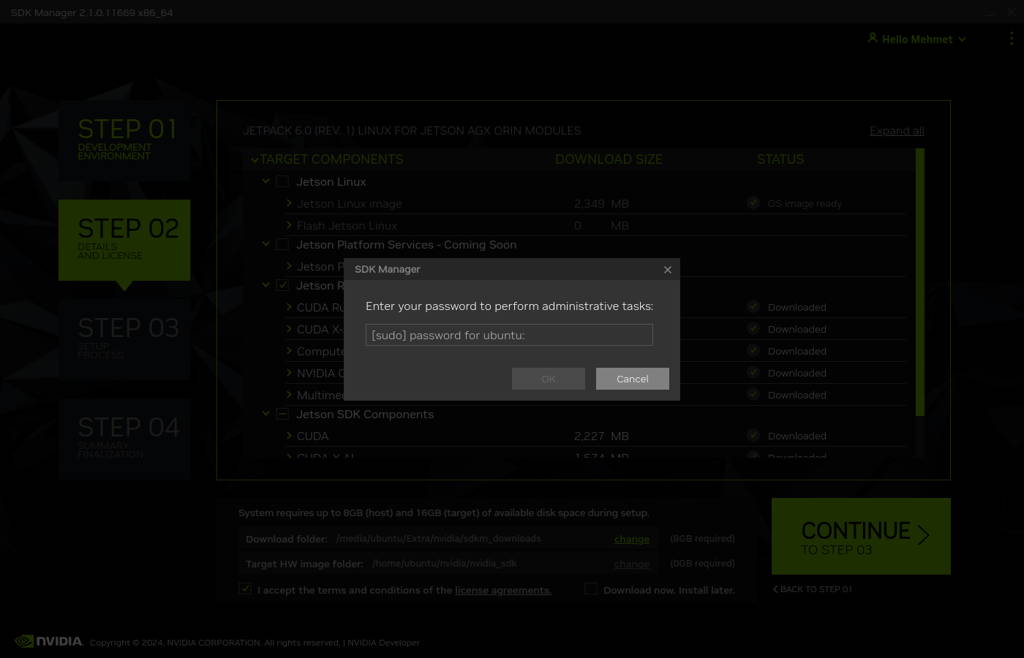
Type the IP address, username and password of Jetson Orin module and install the SDK Components.
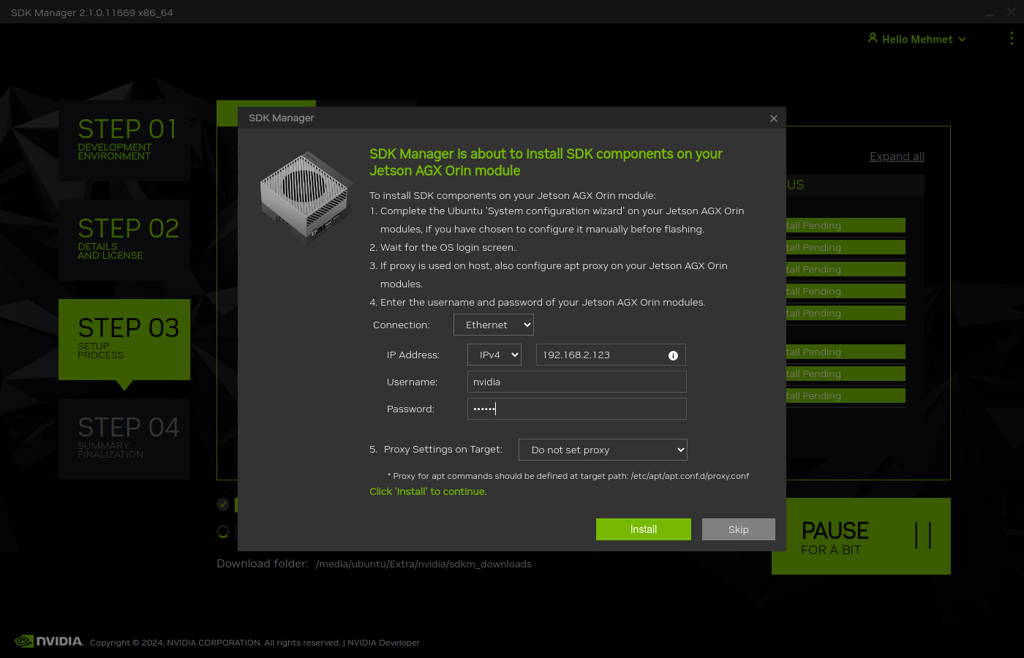
At the end of the installation, the DSBOARD-AGX becomes ready.
To avoid kernel update with "apt upgrade" or "apt-get upgrade" commands, please follow this guide on the Jetson module.
Thank you for reading our blog post.
For detailed video tutorial you can watch the video below.


